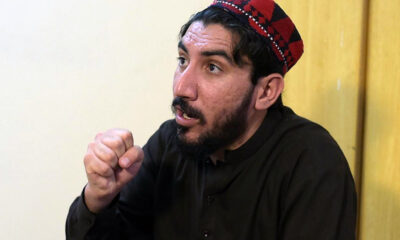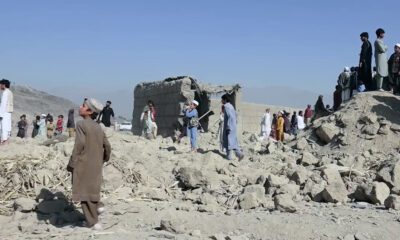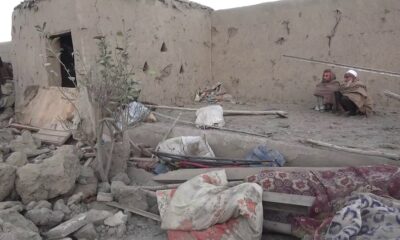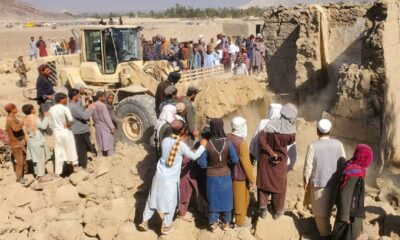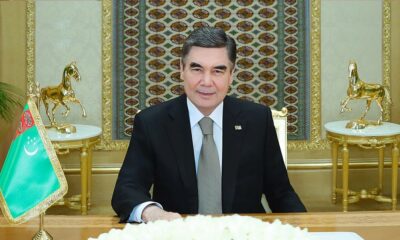Latest News
Taliban make big changes ahead of expected talks with Kabul
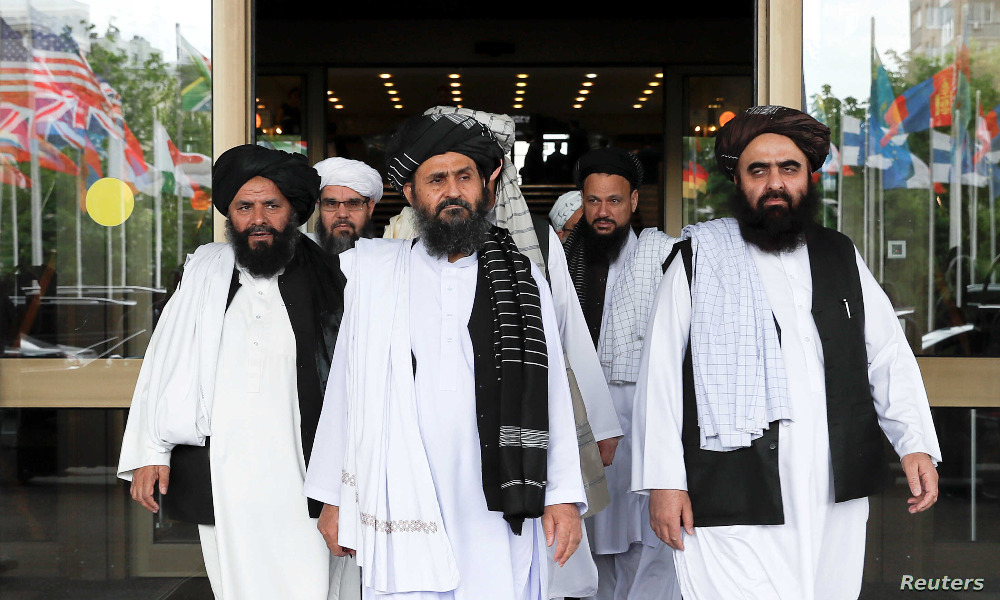
The Taliban have put the son of the movement’s feared founder in charge of their military wing and added several powerful figures to their negotiating team, Taliban officials told Associated Press.
The shake-up, one of the most significant in years, comes ahead of expected talks with Kabul aimed at ending decades of war in Afghanistan.
As head of a newly united military wing, 30-year-old Mullah Mohammad Yaqoob brings his father’s fiercely uncompromising reputation to the battlefield.
Equally significant is the addition of four members of the insurgent group’s leadership council to the 20-member negotiating team, Taliban officials told Associated Press.
The shuffle, overseen by Taliban leader Mullah Hibatullah Akhunzada, is meant to tighten his control over the movement’s military and political arms, the officials said on condition of anonymity because they were not authorized to discuss the inner workings of the Taliban.
According to AP, analysts say the shake-up could be good news for negotiations with the Afghan political leadership, and a sign of how seriously the Taliban are taking this second — and perhaps most critical — step in a deal Washington signed with the insurgents in February.
“I’d say it appears to be a positive development because the Taliban are creating a delegation that seems more senior and more broad-based than they’ve used to date, or than might be strictly necessary for the opening stages of talks,” said Andrew Wilder, vice president of the Asia Program at the Washington-based US Institute of Peace.
“If you want to see the glass as half full, this strengthened Taliban delegation could be interpreted as a sign that the group is planning to engage in serious discussions,” he said.
When the US signed the deal with the Taliban on February 29, after more than a year and a half of negotiations, it was touted as Afghanistan’s best chance at peace in four decades of war. It was also seen as a road map for the withdrawal of US troops from Afghanistan, ending America’s longest war.
On Monday, four-and-a-half months since the signing, chief US negotiator and peace envoy Zalmay Khalilzad tweeted that “a key milestone in the implementation of the US-Taliban agreement” had been reached as American troop numbers dropped to 8,600 from about 12,000 and five bases were closed in Afghanistan.
Even as Khalilzad chastised increased insurgent attacks on Afghan security forces, he said the Taliban had been true to their word not to attack US and NATO troops.
“No American has lost his/her life in Afghanistan to Taliban violence. Regional relations have improved,” he tweeted.
The Taliban have stepped up their military activity against Afghan government forces since Yaqoob’s appointment in May, a sign the militants under his leadership may see battlefield wins as upping their leverage at the negotiating table.
“I can see a lot of reasons for the Taliban to be pushing the envelope — perhaps as a negotiation tactic, but equally likely as a means to test US limits,” said Daniel Markey, a senior research professor at Johns Hopkins University’s School of Advanced International Studies.
“So far, the Trump administration looks like it is heading for the exit, no matter what. Why not ratchet up the violence to see what greater victories can be won?”
Surprisingly, the shuffle also sidelined senior Taliban leader Amir Khan Muttaqi, removing him from the negotiating committee.
Seen as close to neighboring Pakistan, his removal could limit Pakistan’s influence and buttress their position with Kabul, which is deeply suspicious of Islamabad.
Already a deputy head of the movement, the sudden appointment of the son of Mullah Mohammed Omar as the Taliban military chief reportedly ruffled feathers among members of the leadership council, who had not been consulted.
Yaqoob, however, met with the council and won over the dissenters, said the Taliban officials.
“Yaqoob’s appointment appears to be, at least in part, an effort by Mullah Akhundzada to shore up oversight of battlefield operations at a key moment … as the insurgents ramp up violence to strengthen their negotiating position in preparation for potential peace talks with the Afghan government,” said Michael Kugelman, deputy director of the Asia Program at the Washington-based Wilson Center.
In recent weeks, hopes have been raised of a July start to negotiations but the Taliban and the Kabul government have become bogged down in the final release of prisoners, a prerequisite for the start of negotiations.
Taliban spokesman Zabihullah Mujahid told the AP on Friday that the Taliban reject government efforts to substitute prisoners from the originally negotiated list for the exchange.
Countries have been lining up to host the talks, with Germany being the latest to put in an offer and Turkey, Iran, Indonesia, Japan and Norway reportedly among the nation’s volunteering.
However, the Taliban and Afghan government officials say the first round is likely to be held in Doha, the capital of Qatar, where the Taliban maintain a political office.
The newly strengthened negotiating team includes Abdul Hakeem, the Taliban’s chief justice and confidant of Akhunzada, as well as Maulvi Saqib, who was chief justice during the Taliban rule.
Under the US-Taliban deal, the Taliban — who during their rule of Afghanistan hosted al-Qaeda chief Osama bin Laden as he planned the 9/11 attacks — have pledged to no longer host any terror groups.
They also guarantee that Afghanistan will not be used as a launching arena for future attacks against America.
In a tweet this week, Khalilzad said “more progress is needed on counter-terrorism,” without elaborating.
This week, US Secretary of State Mike Pompeo also spoke about the controversy surrounding the White House over reports of Russian money being paid to Afghan militias — reportedly with links to the Taliban — to kill US troops.
“There’s a lot of Russian footprints; there are Russian weapon systems there. We have made clear to our Russian counterparts that we ought to work together to get a more sovereign, more independent, peaceful Afghanistan,” he said.
Latest News
Escalating violence in Pashtun regions during Ramadan raises concerns
He described these incidents as grave violations of international law and acts that have deepened fears among affected communities.

Amid the holy month of Ramadan, violence has continued in several Pashtun areas, raising serious concerns among local communities.
In a post in X, Manzoor Ahmad Pashteen, the founder and head of Pashtun Tahafuz Movement, noted that in Tirah, four Pashtun civilians were reportedly killed and six others injured during operations carried out by the Pakistani army. Protests that followed in Orakzai were also met with force, leaving four more individuals seeking peace and justice injured.
In Afghanistan’s Behsud district, 17 civilians, including women and children, were reportedly killed in airstrikes attributed to Pakistani forces, he stated.
He described these incidents as grave violations of international law and acts that have deepened fears among affected communities.
In recent days, additional casualties have been reported in Rozmak, Shawal (North Waziristan), Mubarak Shahi village (Mir Ali), Speen Wam, Abakhel village, Dosali, Takhte Khel (Lakki Marwat), Azam Warsak (South Waziristan), Bajaur, and Bannu, where clashes between security forces and armed groups have resulted in deaths and injuries among civilians, Pashteen said.
He stated that the ongoing violence reflects longstanding grievances in Pashtun regions. The Pashtun Tahafuz Movement (PTM) has stated that it will continue to oppose what it describes as injustices against Pashtun communities and will stand in solidarity with those affected.
Latest News
UNAMA reports civilian casualties from Pakistani airstrikes in Afghanistan
UNAMA urged all parties to end hostilities, protect civilians, and uphold international law principles of distinction, proportionality, and precaution to prevent further civilian harm.
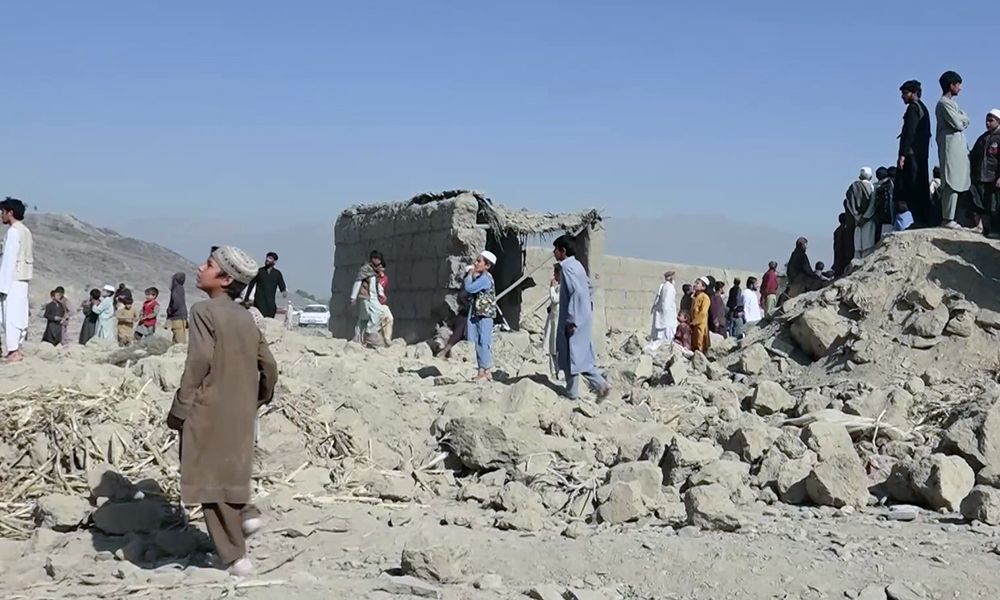
The United Nations Assistance Mission in Afghanistan (UNAMA) has confirmed credible reports of civilian casualties following overnight Pakistani airstrikes inside Afghanistan on 21–22 February.
Airstrikes in Behsud and Khogyani districts of Nangarhar province, carried out between approximately 23:45 on 21 February and 00:15 on 22 February, have reportedly killed at least 13 civilians and injured seven others, including women and children.
Pakistani forces also struck Barmal and Urgun districts in Paktika province.
In Barmal’s Marghai area, an airstrike on 21 February around 23:15 hit a madrassa and partially damaged a nearby mosque.
In Urgun’s Dahna area, an airstrike at approximately 23:30 partially destroyed a vacant private residence. No civilian casualties have been reported from these strikes.
UNAMA urged all parties to end hostilities, protect civilians, and uphold international law principles of distinction, proportionality, and precaution to prevent further civilian harm.
Latest News
Eight schoolchildren among those killed in Pakistani airstrikes in Afghanistan
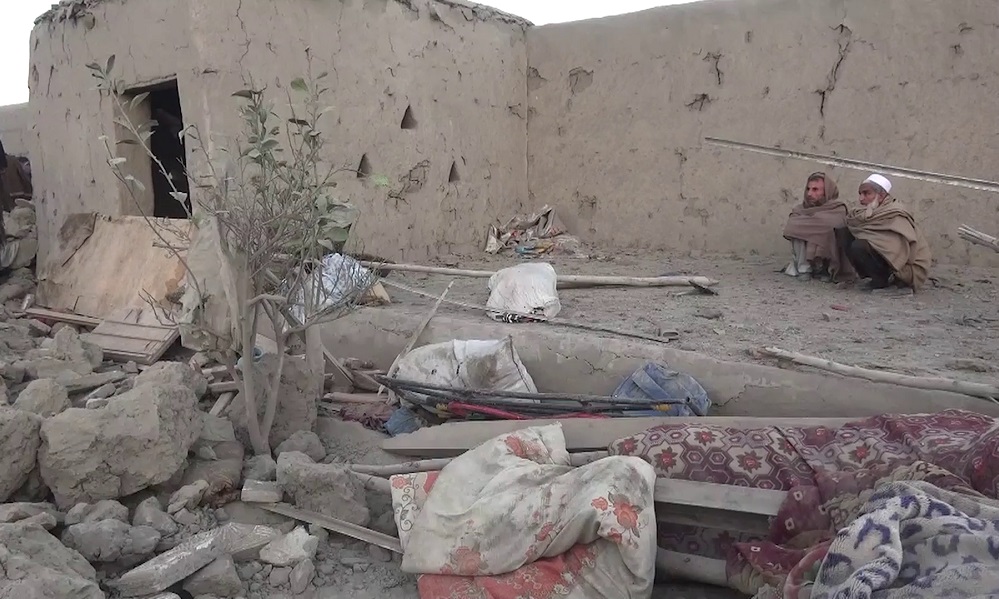
The Ministry of Education reported the tragic losses, highlighting the impact of strikes on civilians and students in the region.
Education Ministry spokesman Mansoor Ahmad Hamza also said that a student at a religious seminary was injured in Barmal district of Paktika province, another area affected by the Pakistani military attacks over the weekend.
Dozens of civilians have reportedly been killed or injured in the airstrikes, which Afghan authorities say targeted residential homes and community areas in both Nangarhar and Paktika provinces.
Local sources describe scenes of devastation, with families searching through rubble and emergency personnel rushing to rescue trapped individuals.
Afghanistan’s Ministry of National Defense condemned the strikes, saying they constitute a violation of Afghan sovereignty and have caused significant civilian harm.
Officials reiterated that Afghan territory must not be used for attacks against other countries and called for restraint and dialogue to prevent further escalation.
The strikes come amid ongoing tensions along the disputed Durand Line between Afghanistan and Pakistan, where security concerns and accusations of militancy have frequently strained relations between Kabul and Islamabad. Analysts note that repeated civilian casualties risk further inflaming regional tensions and complicating diplomatic efforts to reduce violence along the frontier.
-

 Latest News4 days ago
Latest News4 days agoAfghanistan welcomes investment and technology partnerships with India
-

 Sport4 days ago
Sport4 days agoAfghan Peaks founder climbs Aconcagua to promote Afghanistan’s mountain potential
-

 Latest News3 days ago
Latest News3 days agoIndian customs seize Chinese walnuts falsely declared as Afghan
-

 Business4 days ago
Business4 days agoPakistan allows re-export of stranded Afghan transit cargo
-
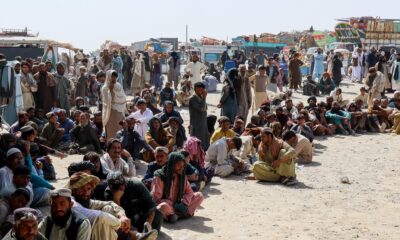
 Latest News3 days ago
Latest News3 days agoPakistan’s Punjab to send home 20 more Afghans in repatriation drive
-

 Latest News4 days ago
Latest News4 days agoPakistan signals possible air strikes as Kabul releases Pakistani soldiers in goodwill move
-

 Latest News2 days ago
Latest News2 days agoMoldova bans Afghan airlines over safety concerns
-

 Latest News1 day ago
Latest News1 day agoAfghanistan vows retaliation after Pakistan launches air strikes


